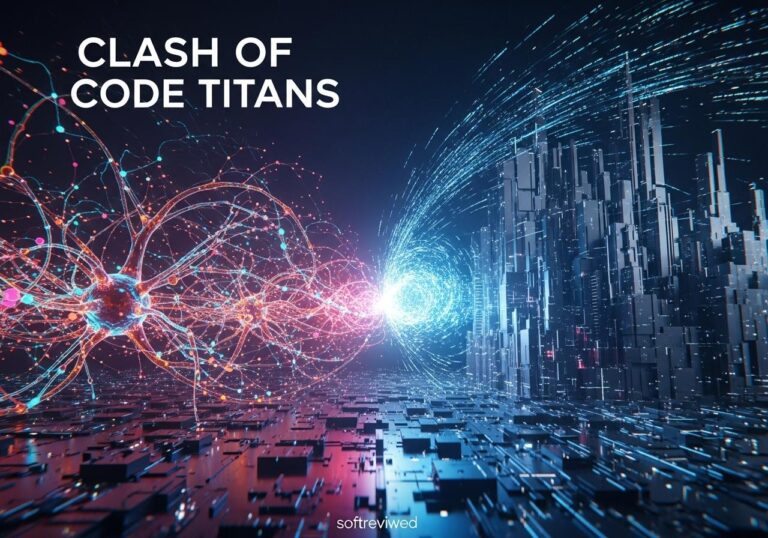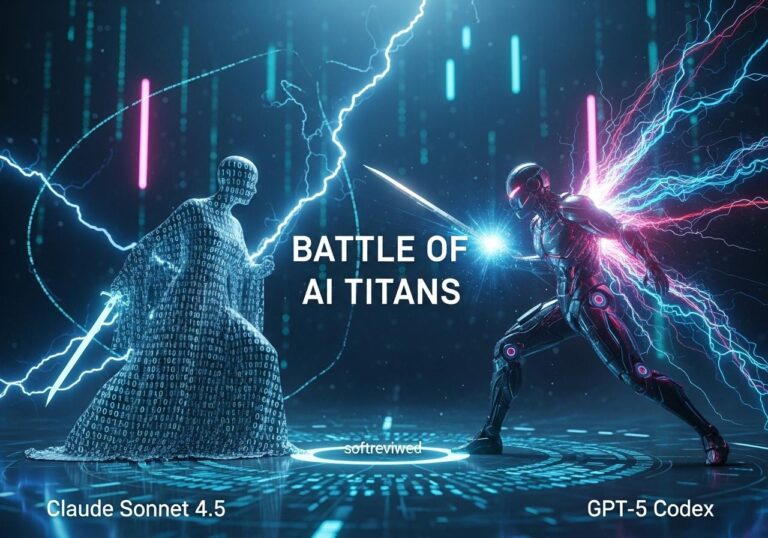📊 UK CMA Investigates Microsoft’s AI Talent Acquisition 🔍
The Competition and Markets Authority’s investigation into Microsoft’s hiring practices could reshape the AI talent landscape. The probe could lead to stricter regulations and increased scrutiny over how major tech companies acquire talent, particularly in the rapidly growing field of artificial intelligence. As AI continues to transform industries, the investigation raises important questions about potential monopolistic behavior and its effect on innovation. Additionally, AI’s impact on video game jobs is becoming increasingly clear, as automation and machine learning reshape roles ranging from game development to quality assurance.
🔎 CMA Investigation
Examining potential anti-competitive behavior in Microsoft’s recruitment of Inflection’s staff.
⚖️ Market Impact
Concerns over reduced competition in the UK’s AI market due to Microsoft’s hiring strategy.
💼 Talent Shortage
AI talent scarcity driving up salaries and intensifying competition for skilled professionals.
📜 Potential Regulations
Investigation may lead to new guidelines on AI talent recruitment, especially for large tech companies.
🌐 Global Implications
Outcome could influence AI talent acquisition approaches worldwide, including the US, EU, and Asia.
The CMA’s investigation marks a pivotal moment in the regulation of AI talent acquisition, potentially reshaping how tech giants approach hiring in this competitive field.
Microsoft’s AI Talent Acquisition Under UK Regulatory Scrutiny: What You Need to Know
In the rapidly advancing world of artificial intelligence, tech giants are constantly on the lookout for top talent to maintain their competitive edge. However, Microsoft’s recent move to recruit key personnel from AI startup Inflection has caught the attention of British regulators, sparking an investigation into potential antitrust violations. This article explores the details of this development and its implications for the AI industry.
The Regulatory Investigation: A Closer Look
On July 16, 2024, the UK’s Competition and Markets Authority (CMA) announced a preliminary investigation into Microsoft’s hiring practices, specifically focusing on the recruitment of Inflection’s co-founder and CEO, Mustafa Suleyman, along with several other key staff members. This move has raised eyebrows and concerns about potential anti-competitive behavior in the AI sector.

Key Points of the Investigation
- Timeline: The CMA has until September 11 to decide whether to approve the situation or escalate to a more in-depth investigation.
- Focus: The investigation centers on whether Microsoft’s recruitment strategy could be viewed as a form of consolidation that significantly reduces competition in the UK’s AI market.
- Implications: The outcome could set a precedent for how tech companies approach talent acquisition and how regulatory bodies respond to such actions in the AI sector.
Microsoft’s AI Talent Acquisition Strategy
Microsoft’s recent hiring spree from Inflection is part of a broader strategy to bolster its position in the competitive AI landscape. Let’s break down the key aspects of this move:
High-Profile Recruitment: Microsoft enlisted Mustafa Suleyman to lead its consumer AI division, a significant coup given Suleyman’s reputation and experience in the field.
Team Acquisition: Along with Suleyman, Microsoft also recruited several leading engineers and researchers from Inflection, effectively bringing in a ready-made team of AI experts.
Strategic Positioning: This move allows Microsoft to quickly enhance its AI capabilities without going through a formal acquisition process.
The Regulatory Perspective

The CMA’s investigation highlights the increasing scrutiny that major tech companies face when it comes to their growth strategies, particularly in emerging technologies like AI.
Regulatory Concerns
- Market Concentration: The primary worry is that such hiring practices could lead to an unhealthy concentration of AI talent and resources in the hands of a few large corporations.
- Innovation Impact: There are concerns that this could stifle innovation by reducing the number of independent players in the AI market.
- Competitive Landscape: Regulators are keen to ensure that the AI sector remains competitive and that smaller companies and startups have a fair chance to grow and innovate.
Industry Reactions and Perspectives
The news of this investigation has sparked various reactions within the tech industry and beyond. Let’s explore some of the viewpoints:
Microsoft’s Stance
Microsoft has publicly stated its position on the matter:
“We believe that talent recruitment fosters competition and should not be perceived as a merger.”
The company has committed to cooperating fully with the UK Competition and Markets Authority throughout the investigation process.
Proponents of the Investigation
Those in favor of the regulatory scrutiny argue that:
- It’s necessary to prevent monopolistic practices in the AI sector.
- It protects the interests of smaller AI companies and startups.
- It ensures a diverse and innovative AI ecosystem.
Critics of the Investigation
On the other hand, critics of the investigation contend that:
- Talent mobility is essential for innovation and should not be restricted.
- Regulatory overreach could hamper the growth of the AI industry.
- Companies should be free to hire the best talent available to remain competitive.
The Broader Context: AI Talent Wars
Microsoft’s hiring of Inflection’s staff is not an isolated incident but part of a larger trend in the AI industry. Let’s examine this phenomenon:
The AI Talent Shortage
- Limited Pool: There’s a global shortage of AI experts, particularly those with experience in cutting-edge technologies.
- High Demand: This scarcity has led to intense competition among tech companies to attract and retain top AI talent.
- Salary Wars: The shortage has driven up salaries for AI specialists, with some commanding extraordinarily high compensation packages.
Impact on Startups
- Brain Drain: Smaller AI companies and startups often struggle to retain their top talent in the face of offers from tech giants.
- Innovation Challenges: This talent drain can make it difficult for startups to maintain their innovative edge.
- Funding Pressures: The high cost of retaining AI talent can put additional financial strain on startups.
Potential Outcomes and Implications
The CMA’s investigation could have far-reaching consequences for the AI industry. Here are some potential scenarios:
Scenario 1: No Further Action
If the CMA finds no significant competition concerns, it may choose not to pursue further action. This could:
- Validate Microsoft’s approach to talent acquisition.
- Encourage other tech giants to adopt similar strategies.
- Potentially lead to more aggressive talent recruitment in the AI sector.
Scenario 2: Extended Investigation
If the CMA decides to conduct a more in-depth investigation, it could:
- Create uncertainty in the market regarding talent acquisition strategies.
- Prompt other tech companies to be more cautious in their hiring practices.
- Potentially lead to new guidelines or regulations on AI talent recruitment.
Scenario 3: Regulatory Action
If the investigation concludes that Microsoft’s actions have indeed harmed competition, possible outcomes include:
- Restrictions on how large tech companies can recruit from smaller AI firms.
- Requirements for tech giants to support or compensate affected startups.
- New antitrust regulations specifically tailored to the AI industry.
The Global Perspective
While this investigation is taking place in the UK, its implications could be felt globally. Here’s how it might impact the international AI landscape:
United States
- The Federal Trade Commission (FTC) and Department of Justice (DOJ) may take cues from the UK’s approach.
- It could influence ongoing discussions about tech regulation and antitrust measures in the US.
European Union
- The EU, known for its proactive stance on tech regulation, may consider similar investigations or preemptive measures.
- It could feed into the EU’s ongoing efforts to regulate AI and ensure fair competition in the tech sector.
Asia
- Countries like China, Japan, and South Korea, which are heavily invested in AI development, may reassess their regulatory frameworks.
- It could influence how these countries balance nurturing their AI industries with ensuring fair competition.
The Future of AI Talent Acquisition
Regardless of the outcome of this specific investigation, it’s clear that the landscape of AI talent acquisition is evolving. Here are some trends we might see in the future:
More Transparency: Companies may need to be more open about their hiring practices, particularly when recruiting from smaller competitors.
Collaborative Models: We might see more partnerships between large tech companies and AI startups, rather than outright talent acquisition.
Investment in Education: Tech giants may increase their investments in AI education and training programs to expand the talent pool.
Retention Strategies: Startups may develop innovative retention strategies to keep their top talent, such as offering equity or unique research opportunities.
Regulatory Frameworks: Governments and regulatory bodies may develop more specific guidelines for AI talent acquisition and competition in the tech sector.
Conclusion
The CMA’s investigation into Microsoft’s hiring of Inflection’s staff represents a significant moment in the ongoing dialogue about competition, innovation, and regulation in the AI industry. As the investigation unfolds, it will undoubtedly shape how tech companies approach talent acquisition and how regulators view these practices.
For the AI industry as a whole, this investigation serves as a reminder of the delicate balance between fostering innovation and ensuring fair competition. It highlights the need for thoughtful regulation that protects the interests of all players in the ecosystem, from tech giants to startups and individual innovators.
As we await the outcome of this investigation, one thing is clear: the intersection of AI, talent acquisition, and regulatory oversight will continue to be a critical area of focus for the tech industry in the years to come.
What Impact Could Cameron’s Move to Stability AI Have on Microsoft’s AI Talent Acquisition Strategy?
Cameron’s stability ai role could significantly reshape Microsoft’s AI talent acquisition strategy. By leveraging his expertise and connections in the industry, Microsoft may strengthen its recruitment efforts, attracting top-tier talent. This move might enhance collaboration and innovation within their AI projects, positioning them as a formidable competitor in the market.
What’s Your Take?
We’d love to hear your thoughts on this developing story. Do you think regulatory bodies should intervene in how tech companies recruit talent? Or do you believe that the free movement of talent is essential for innovation in the AI sector? Share your opinions and let’s continue this important conversation about the future of AI and competition in the tech industry.







